December 13–14, 2022
Registration for this event is now closed.
About the boot camp
AUS’ Electrical Engineering Boot Camp is a two-day event designed to give aspiring electrical engineers insight into what it like to be an electrical engineer in today’s modern workforce and provide them with a taste of the skills and knowledge required of electrical engineers.
Facilitated by world-renowned AUS electrical engineering faculty, participants have the opportunity to test out their new-found skills in the university’s state-of-the-art engineering laboratories and take a look around the magnificent AUS campus.
Why should I attend?
If you are a high school student in grade 10, 11 or 12 and love science and math and understanding how things work, this boot camp is for you!
By taking part, you will learn what it’s like to be an electrical engineering student at a top-ranked university and learn about some of the most important areas of electrical engineering, including:
- artificial intelligence (AI) and signals
- robotics and drones
- renewable energy, electric vehicles and electric trains
- internet of things (IoT), microelectronics and modern communications
- bioengineering
The boot camp will give you a chance to connect with like-minded students and gain skills and knowledge that are fundamental to the study of electrical engineering.
Areas covered in the boot camp
Participants will attend sessions on important and rapidly developing areas of electrical engineering, detailed below.
Artificial intelligence (AI) and signals
What is AI? Are machines taking over? Are machines out of our control? We discuss all this and the applications of AI algorithms to digital signals derived from electrical devices, such as images, videos, speech signals, brain signals and so on. You will:
- have a sneak peak of demos developed at AUS
- grasp the basics of AI algorithms
- make your own neural network for image recognition
Robotics and Drones
Get a hands-on introduction to robot assembly and control!
- build a mobile robot
- use AI to move your robot
- sneak a peek into our world-class drone academy
Renewable Energy, Electric Vehicles and Electric Trains
Get hands-on experience of
- development and operation of solar photovoltaic system
- motor applications in metro trains/roller coasters and electric vehicles
- electric vehicle traction system operation
Internet of Things (IoT), Microelectronics And Modern Communications
You will be introduced to the world of modern electronics. Gain hands-on and informational knowledge on how a mobile phone is made and operates. How does a WiFi connection work? Why are electronics today leading the acceleration of AI systems? What is behind the internet of things (IoT) and how do modern electronics make it all work?
- Get into our electronics labs and help build a real radio!
- Have you ever been into a cleanroom? This is your opportunity to see how we test integrated circuits.
- Experiment with our equipment and learn how to use an oscilloscope.
Bioengineering
Believe it or not, we depend on electrical signals generated within our bodies for proper functioning! Ever felt dizzy on a hot summer day? It is because our bodies sweat and lose the ions that are vital to carry these signals. We can even measure these signals—the electrical signals in the brain (EEG), electrical signals in muscles (EMG), electrical signals generated with our heart pumping blood (ECG), and so on! You will:
- get hands-on experience for using our system to record ECG from the human body and grasp primary functions of an ECG recording system
- understand primary cardiac activities from the ECG signals
- get hands-on experience for recording heart rate with sensors and learn the working principle behind it
About the Instructors
- Dr. Usman Tariq
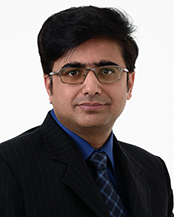 Usman Tariq loves making machines intelligent! He received a PhD in Electrical and Computer Engineering from the University of Illinois at Urbana-Champaign, in 2013. He is a faculty member in the Department of Electrical Engineering, AUS. He has also worked as a Research Scientist with Computer Vision Group, Xerox Research Center Europe, France. His research interests are in computer vision, machine learning and affective computing.
Usman Tariq loves making machines intelligent! He received a PhD in Electrical and Computer Engineering from the University of Illinois at Urbana-Champaign, in 2013. He is a faculty member in the Department of Electrical Engineering, AUS. He has also worked as a Research Scientist with Computer Vision Group, Xerox Research Center Europe, France. His research interests are in computer vision, machine learning and affective computing.- Dr. Shayok Mukhopadhyay
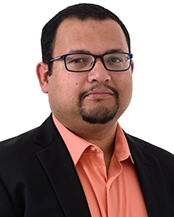 Shayok Mukhopadhyay received the following degrees in electrical engineering: BE degree from the College of Engineering Pune, Savitribai Phule Pune University, Pune, India, in 2006; an MSc degree from Utah State University, Logan, UT, USA, in 2009; and a PhD degree from the Georgia Institute of Technology, Atlanta, GA, USA, in 2014. He has been with the Department of Electrical Engineering at AUS since 2014, where he is an Associate Professor. His research interests include control systems, energy storage systems, and robotic path planning. He received the award for the best presentation in the Nonlinear Systems III Session from the American Control Conference 2014. He was a part of a five-person team that received the UAE national category of the AI and Robotics for Good Award for developing an in-pipe inspection robot in 2017. He is currently serving as the chair of the IEEE UAE section joint chapter on CSS/RAS/EMBS.
Shayok Mukhopadhyay received the following degrees in electrical engineering: BE degree from the College of Engineering Pune, Savitribai Phule Pune University, Pune, India, in 2006; an MSc degree from Utah State University, Logan, UT, USA, in 2009; and a PhD degree from the Georgia Institute of Technology, Atlanta, GA, USA, in 2014. He has been with the Department of Electrical Engineering at AUS since 2014, where he is an Associate Professor. His research interests include control systems, energy storage systems, and robotic path planning. He received the award for the best presentation in the Nonlinear Systems III Session from the American Control Conference 2014. He was a part of a five-person team that received the UAE national category of the AI and Robotics for Good Award for developing an in-pipe inspection robot in 2017. He is currently serving as the chair of the IEEE UAE section joint chapter on CSS/RAS/EMBS.- Mr. Wasil El-Tahir
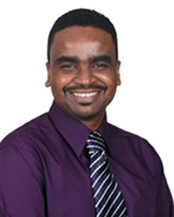 Wasil El-Tahir received his BSc and MSc in Mechatronics from IIUM, Malaysia. He specializes in control systems, measurements and automation. His software/hardware expertise includes dSPACE RCP, NI and LabVIEW; DAQ, MyRIO, PXI controllers; PLC Automation: SIEMENS S7-1500, 1200, 400, & 300; and MATLAB/SIMULINK.
Wasil El-Tahir received his BSc and MSc in Mechatronics from IIUM, Malaysia. He specializes in control systems, measurements and automation. His software/hardware expertise includes dSPACE RCP, NI and LabVIEW; DAQ, MyRIO, PXI controllers; PLC Automation: SIEMENS S7-1500, 1200, 400, & 300; and MATLAB/SIMULINK.- Dr. Habib-ur Rehman
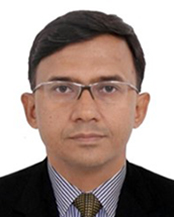 Habibur Rehman received his Bachelor of Science in Electrical Engineering from the University of Engineering and Technology Lahore, Pakistan, in 1990. He received MS and PhD degrees, both in electrical engineering, from The Ohio State University, Columbus, Ohio, in 1995 and 2001, respectively. He has wide experience in the area of power electronics and motor drives in industry and academia. From July 1998 to December 1999, he worked as a design engineer in the Ecostar Electric Drives and Ford Research Laboratory, where he was a member of the Electric, Hybrid, and Fuel Cell vehicles development programs. From 2001 to 2006 he worked in the department of electrical engineering at the United Arab Emirates (UAE) University, Al-Ain, as an Assistant Professor. In 2006, he joined the Department of Electrical Engineering at AUS where he is currently working as an Associate Professor. Dr. Rehman is the recipient of the Best Teacher Award from the College of Engineering, UAE University for the academic year 2002-2003. His primary research interests are in the areas of power electronics and their application to power systems, adjustable-speed drives and alternative energy vehicles.
Habibur Rehman received his Bachelor of Science in Electrical Engineering from the University of Engineering and Technology Lahore, Pakistan, in 1990. He received MS and PhD degrees, both in electrical engineering, from The Ohio State University, Columbus, Ohio, in 1995 and 2001, respectively. He has wide experience in the area of power electronics and motor drives in industry and academia. From July 1998 to December 1999, he worked as a design engineer in the Ecostar Electric Drives and Ford Research Laboratory, where he was a member of the Electric, Hybrid, and Fuel Cell vehicles development programs. From 2001 to 2006 he worked in the department of electrical engineering at the United Arab Emirates (UAE) University, Al-Ain, as an Assistant Professor. In 2006, he joined the Department of Electrical Engineering at AUS where he is currently working as an Associate Professor. Dr. Rehman is the recipient of the Best Teacher Award from the College of Engineering, UAE University for the academic year 2002-2003. His primary research interests are in the areas of power electronics and their application to power systems, adjustable-speed drives and alternative energy vehicles.- Dr. Kashif Bangash
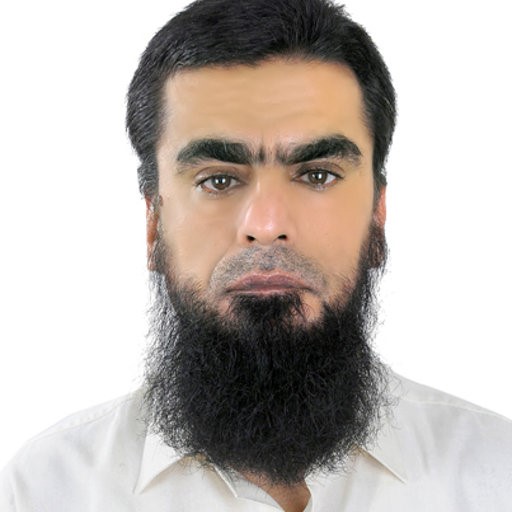 Dr. Kashif earned a PhD in Smart Grids from Glasgow Caledonian University, UK in 2017. He joined AUS as a lab Instructor in the Power Systems Lab in 2008. From 1997 to 2007 he served as Executive Engineer in Military Engineering Services, Pakistan; Power System Analyst/Control Engineer in the National Load Dispatch Centre, Islamabad, Pakistan; Electrical Consultant Engineer at 1450 MW Ghazi Barotha Hydro Electrical Power House, Pakistan; and Operation/Maintenance Engineer at Frontier Ceramic industry, Pakistan. His areas of research and interests are power system operation and control, smart grid and FACTS devices.
Dr. Kashif earned a PhD in Smart Grids from Glasgow Caledonian University, UK in 2017. He joined AUS as a lab Instructor in the Power Systems Lab in 2008. From 1997 to 2007 he served as Executive Engineer in Military Engineering Services, Pakistan; Power System Analyst/Control Engineer in the National Load Dispatch Centre, Islamabad, Pakistan; Electrical Consultant Engineer at 1450 MW Ghazi Barotha Hydro Electrical Power House, Pakistan; and Operation/Maintenance Engineer at Frontier Ceramic industry, Pakistan. His areas of research and interests are power system operation and control, smart grid and FACTS devices.- Dr. Lutfi Albasha
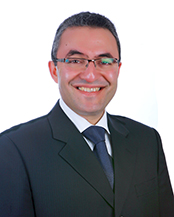 Lutfi Albasha, is an electronics enthusiast with a great passion for innovations. He even lectures it! He received BEng and PhD degrees in electronic and electrical engineering from the University of Leeds, UK. He then joined Sony Corporation and worked in commercial chip products for mobile handsets. In 2000 he joined Filtronic Semiconductors as a Senior Principal Engineer, where he created an IC Design Team. The team supported the company foundry design enablement for mass production of RFIC products and taped out its first commercial chips. This became a successful business in Europe’s then largest GaAs MMIC foundry. He returned to Sony as a Lead Principal Engineer, where he was involved in highly integrated RFCMOS and BiCMOS transceivers for cellular and TV applications. He joined AUS and progressed to the rank of full professor. His current areas of research are in energy harvesting and wireless power transfer, low-power wearable and implantable devices, high-efficiency power amplifier design and linearization for multimode applications, and integrated radar transceivers. He received several recognition awards from Sony Corporation, the IET, IEEE and the University of Leeds. He is an Associate Editor of the IET Microwaves, Antenna and Propagation Journal and served for three terms as the Chair of the UAE Chapter of the IEEE Solid-State Circuits Society.
Lutfi Albasha, is an electronics enthusiast with a great passion for innovations. He even lectures it! He received BEng and PhD degrees in electronic and electrical engineering from the University of Leeds, UK. He then joined Sony Corporation and worked in commercial chip products for mobile handsets. In 2000 he joined Filtronic Semiconductors as a Senior Principal Engineer, where he created an IC Design Team. The team supported the company foundry design enablement for mass production of RFIC products and taped out its first commercial chips. This became a successful business in Europe’s then largest GaAs MMIC foundry. He returned to Sony as a Lead Principal Engineer, where he was involved in highly integrated RFCMOS and BiCMOS transceivers for cellular and TV applications. He joined AUS and progressed to the rank of full professor. His current areas of research are in energy harvesting and wireless power transfer, low-power wearable and implantable devices, high-efficiency power amplifier design and linearization for multimode applications, and integrated radar transceivers. He received several recognition awards from Sony Corporation, the IET, IEEE and the University of Leeds. He is an Associate Editor of the IET Microwaves, Antenna and Propagation Journal and served for three terms as the Chair of the UAE Chapter of the IEEE Solid-State Circuits Society.- Dr. Mohamed Hassan
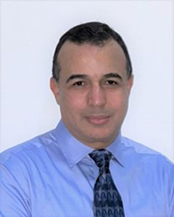
Mohamed Hassan received his Master of Science degree in Electrical Engineering from the University of Pennsylvania, USA, in 2000, and a PhD in Electrical and Computer Engineering from the University of Arizona, USA, in 2005. He is currently a full professor of electrical engineering at AUS. He has been involved in multiple projects related to free space optical communications, electromagnetic shielding, demand response and smart grids, anti-static flooring and fiber optic sensors for infrastructure health monitoring applications. His research interests include multimedia communications and networking, wireless communications, cognitive radios, resource allocation and performance evaluation of wired networks, and next-generation wireless systems in addition to dynamic wireless charging systems for electric vehicles.
- Dr. Ming Foey Teng
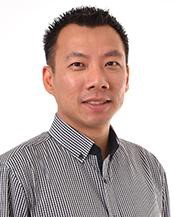 Ming Foey Teng joined AUS in August 2018. Before this, he had worked in Australia, Singapore and Kuwait, with more than 15 years of teaching, tutoring and supervising experience. He has much knowledge and experience in course development, including online delivery for distant and remote learning. His research interests lie in using carbon nanotubes in micro-sensor design. He is also actively promoting, researching and implementing remote laboratory and low-cost portable learning devices for electronics engineering students. In his spare time, he enjoys music and building robots!
Ming Foey Teng joined AUS in August 2018. Before this, he had worked in Australia, Singapore and Kuwait, with more than 15 years of teaching, tutoring and supervising experience. He has much knowledge and experience in course development, including online delivery for distant and remote learning. His research interests lie in using carbon nanotubes in micro-sensor design. He is also actively promoting, researching and implementing remote laboratory and low-cost portable learning devices for electronics engineering students. In his spare time, he enjoys music and building robots! - Dr. Narayanan Raghavan
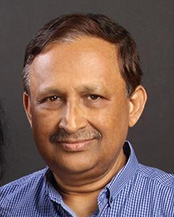 Narayanan Raghavan has been teaching in the field of electronics for the last 38 years. He has worked in several reputed engineering institutions in India and the Middle East. Since 2002 he has been working with the AUS Department of Electrical Engineering. His research interests are in the areas of microelectronics, embedded systems and electronic packaging.
Narayanan Raghavan has been teaching in the field of electronics for the last 38 years. He has worked in several reputed engineering institutions in India and the Middle East. Since 2002 he has been working with the AUS Department of Electrical Engineering. His research interests are in the areas of microelectronics, embedded systems and electronic packaging.- Mr. Ibrahim Abu Seif
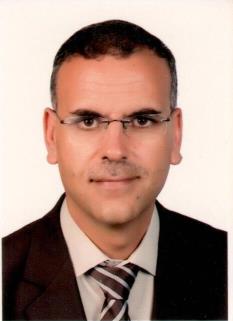 Ibrahim Abu Seif is working as a senior Laboratory Instructor at the department of Electrical Engineering at AUS. He holds a master of science in Electrical Engineering from the University of Jordan in 2003. Prior to joining AUS, he worked for five years as a Laboratory Instructor at the Applied Sciences University in Jordan. He is supervising several Labs in the area of Communications, RF & Microwave Engineering, His research interests include computational electromagnetic, Microwave systems and radio wave propagation.
Ibrahim Abu Seif is working as a senior Laboratory Instructor at the department of Electrical Engineering at AUS. He holds a master of science in Electrical Engineering from the University of Jordan in 2003. Prior to joining AUS, he worked for five years as a Laboratory Instructor at the Applied Sciences University in Jordan. He is supervising several Labs in the area of Communications, RF & Microwave Engineering, His research interests include computational electromagnetic, Microwave systems and radio wave propagation.
Agenda
Please click here to see the agenda.

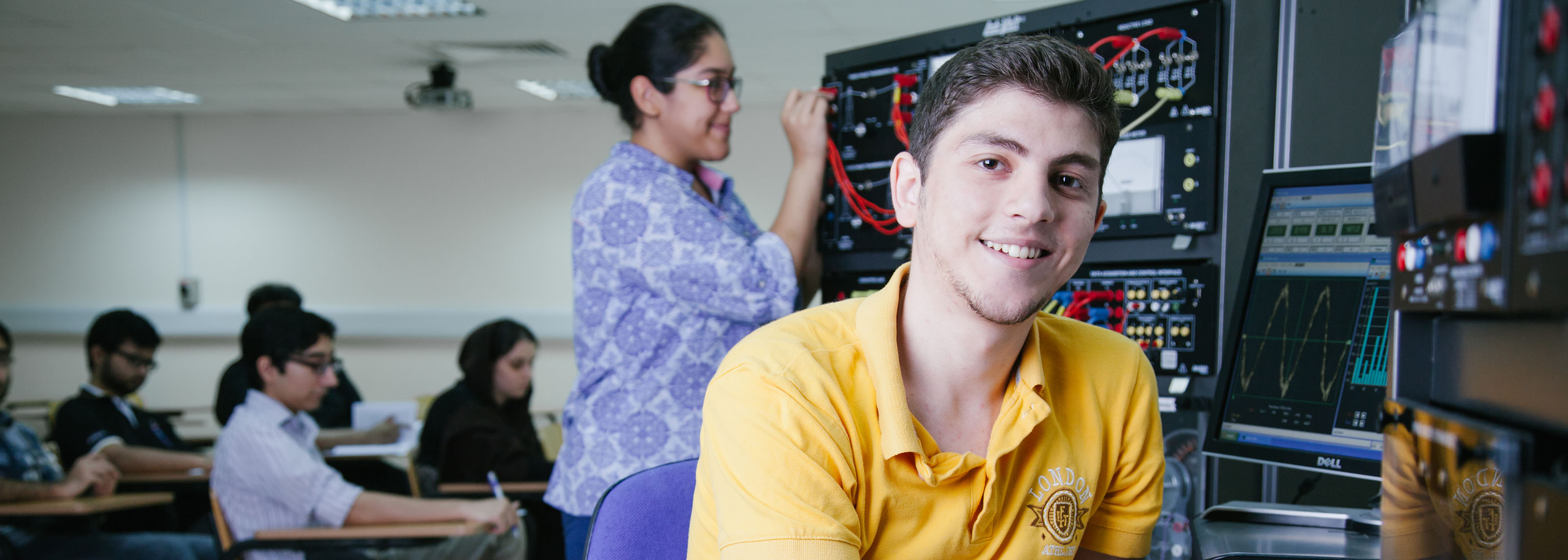
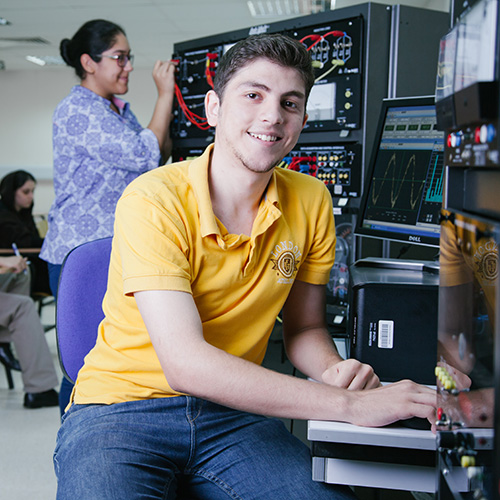
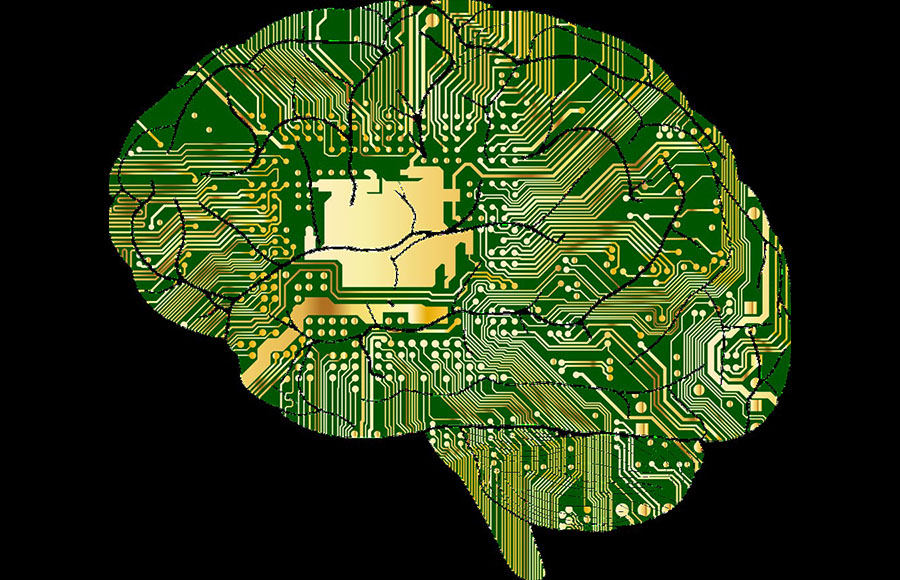
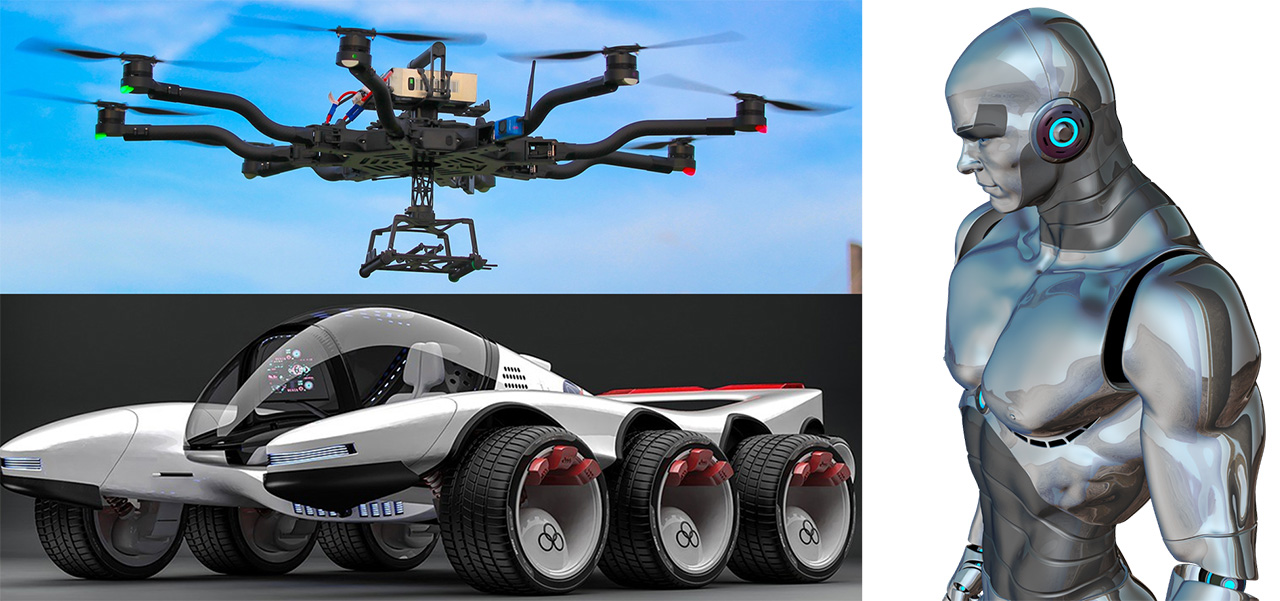

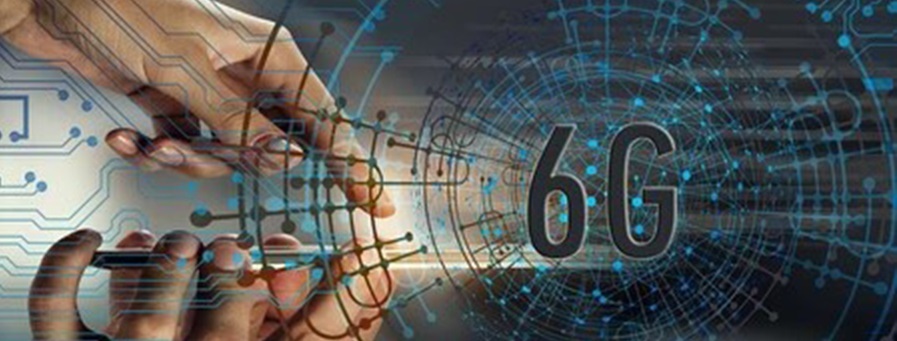
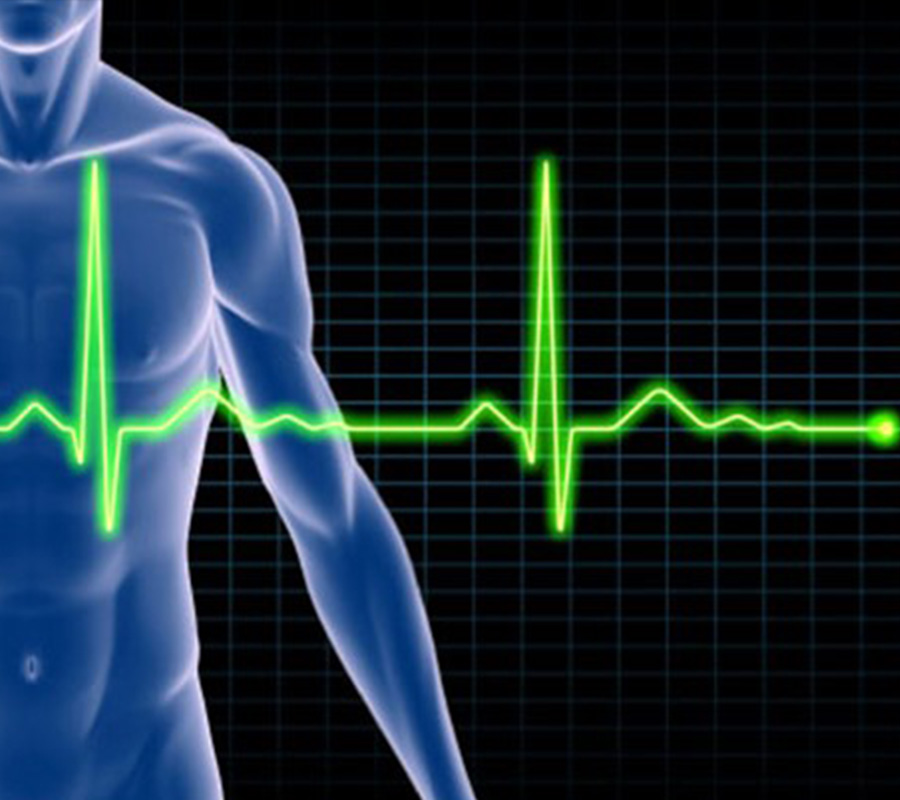
 Wasil El-Tahir received his BSc and MSc in Mechatronics from IIUM, Malaysia. He specializes in control systems, measurements and automation. His software/hardware expertise includes dSPACE RCP, NI and LabVIEW; DAQ, MyRIO, PXI controllers; PLC Automation: SIEMENS S7-1500, 1200, 400, & 300; and MATLAB/SIMULINK.
Wasil El-Tahir received his BSc and MSc in Mechatronics from IIUM, Malaysia. He specializes in control systems, measurements and automation. His software/hardware expertise includes dSPACE RCP, NI and LabVIEW; DAQ, MyRIO, PXI controllers; PLC Automation: SIEMENS S7-1500, 1200, 400, & 300; and MATLAB/SIMULINK. Ming Foey Teng joined AUS in August 2018. Before this, he had worked in Australia, Singapore and Kuwait, with more than 15 years of teaching, tutoring and supervising experience. He has much knowledge and experience in course development, including online delivery for distant and remote learning. His research interests lie in using carbon nanotubes in micro-sensor design. He is also actively promoting, researching and implementing remote laboratory and low-cost portable learning devices for electronics engineering students. In his spare time, he enjoys music and building robots!
Ming Foey Teng joined AUS in August 2018. Before this, he had worked in Australia, Singapore and Kuwait, with more than 15 years of teaching, tutoring and supervising experience. He has much knowledge and experience in course development, including online delivery for distant and remote learning. His research interests lie in using carbon nanotubes in micro-sensor design. He is also actively promoting, researching and implementing remote laboratory and low-cost portable learning devices for electronics engineering students. In his spare time, he enjoys music and building robots!  Narayanan Raghavan has been teaching in the field of electronics for the last 38 years. He has worked in several reputed engineering institutions in India and the Middle East. Since 2002 he has been working with the AUS Department of Electrical Engineering. His research interests are in the areas of microelectronics, embedded systems and electronic packaging.
Narayanan Raghavan has been teaching in the field of electronics for the last 38 years. He has worked in several reputed engineering institutions in India and the Middle East. Since 2002 he has been working with the AUS Department of Electrical Engineering. His research interests are in the areas of microelectronics, embedded systems and electronic packaging.